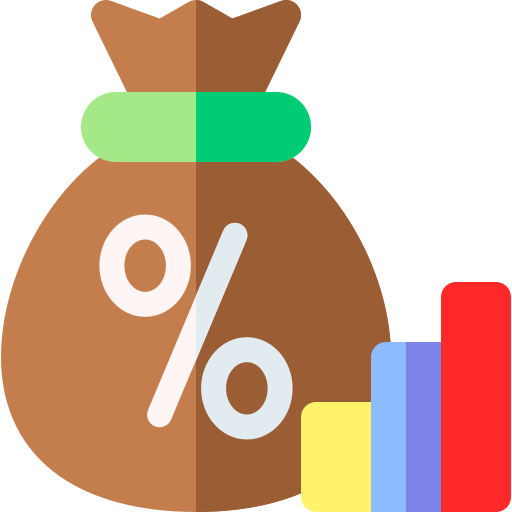Self Employed Mortgages
Important!
AnnieMac Home Mortgage is not a financial advisor. The ideas outlined above are for informational purposes only, are not intended as investment or financial advice, and should not be construed as such. Consult a financial advisor before making important personal financial decisions.
Getting a Mortgage as a Self-Employed Worker
It is no secret that it is easier to get a mortgage as a W2 employee rather than as someone who is self-employed, but this does not mean that it is impossible to qualify. Being self-employed comes with its challenges such as proving to lenders that you earn a steady enough income to make your monthly payments, as well as getting your lender to sort through the additional paperwork involved in your mortgage application as a self-employed person. Although there are some additional challenges, there are many steps you can take to make yourself an attractive loan candidate.
AnnieMac Home Mortgage Products Available for the Self-Employed:
It is key to find the best lender as a self-employed borrower and AnnieMac Home Mortgage believes we can be that lender for you. We are skilled at understanding your specific situation and will work with you to help you obtain the mortgage that works best for you! Below are available options for self-employed individuals looking for a mortgage:
Expanded Credit
Flexible solutions for borrowers recovering from recent credit impairments:
- Credit scores down to 620.
- LTVs up to 80%, no MI.
- Loan amounts up to $1.5M.
- DTIs up to 50%.
- Standard full Doc & Self-Employed Bank Statement Options (12 or 24 Months).
- Interest-Only options.
- Cash-out solutions to unlock equity or consolidate debt.
Expanded Prime
Borrowers at least 4 years past a housing event:
- Credit scores down to 660.
- LTVs up to 90%, no MI.
- Loan amounts up to $3M.
- DTIs up to 50%.
- Standard Full Doc & Self-Employment Bank Statement Options (12 or 24 Months).
- Second Home, Investment Properties, and Interest-Only Options.
Platinum Full Doc
- Up to 85% LTV.
- Credit scores down to 660 FICO.
- Loans up to $3M.
- Owner-occupied, second homes, and investment properties.
- Cash-out available - $1M maximum.
- Interest-only available.
- 1-year tax return program available.
- 4 years seasoning for foreclosure, short sale, bankruptcy, or deed-in-lieu
Bank Statement Program
- Up to 90% LTV.
- Credit scores down to 620 FICO.
- 2 years seasoning for foreclosure, short sale, bankruptcy, or deed-in-lieu.
- Loans up to $3M (minimum loan $100,000).
- 12- or 24-months business or personal bank statements.
- 2 years self-employed required.
- Owner-occupied, second homes, and investment properties.
- 1099 option available.
- Interest-only available.
ITIN Program
- Self-employed or 1099 borrowers.
- LTV’s up to 80%.
- Gift funds Allowed.
- No Seasoning on Bankruptcy, Foreclosure, Short Sale or Modification
- Primary or Secondary properties
- Credit Scores down to 600
Who Is Considered "Self-Employed?"
 You are a sole proprietor
You are a sole proprietor You own your own business
You own your own business You are primarily a landlord
You are primarily a landlord You receive royalties
You receive royalties You are a contract worker
You are a contract worker You receive 1099 forms instead of W2s
You receive 1099 forms instead of W2s You pay self-employment tax payments
You pay self-employment tax payments You are a partner with at least 25% ownership in a business
You are a partner with at least 25% ownership in a business You receive more than 25% of your income in bonus or commission
You receive more than 25% of your income in bonus or commission  The bulk of your income comes from dividends and interest
The bulk of your income comes from dividends and interest
Can I Get a Mortgage if Self-Employed for Less Than 1 Year?
Lenders typically want to see at least two-years of self-employment to ensure that your income is stable and reliable. It is possible to get approved for a mortgage with just one year of self-employment history, but not everyone in this situation will qualify. It may be easier to get your application approved if you have worked in the same field and earned a comparable income before becoming self-employed for less than a year.
What is a 1099 Income?
Each type of non-employment income requires a different version of a 1099 form to report all income to the IRS for tax purposes. Independent contractors, freelancers, and the self-employed should fill out the specific tax documents that correlate to the type of work done. 1099s are essential when keeping track of income that is not recorded in a person’s wages or salary normally found in a W-2.
How to Get a Mortgage with 1099 Income
As a self-employed person, it is important to make yourself look attractive to lenders to help improve your chances of getting approved for a home loan.
-

Establish a Self-Employment Track Record
Before applying for a mortgage, you should have at least two years of self-employment history, documented by tax records. A stable income will make you more attractive to lenders.
-

Increase Your Credit Score
A higher credit score will make you a more attractive candidate to lenders and will help you qualify for a lower interest rate.
-

Have an Emergency Fund
Having money in an emergency fund shows lenders that you will be able to keep making your monthly housing payments incase your business starts to slow down.
Providing Documentation
Be sure to give your lender all income related documents from the past few years including tax returns, profit and loss statements, balance sheets, and bank statements to increase your chances of obtaining a mortgage. Below is a list of possible documentation you might be asked to provide:
- List of debts and monthly payments for your business.
- List of assets including savings account and investment accounts.
- Additional sources of income.
- Proof of your business or self-employed status including your business license, letters from clients, and statements from our accountants.
- Proof of current rent or mortgage payments.
- Two years’ personal tax returns (IRS form 1040) along with all schedules you were required to file, including Schedule S
- 1099 forms and/or W2s from your small business if you pay yourself a salar
- Business tax form
- Profit-and-loss statement to show the current year’s finances and how they compare to previous years’ tax record
- CPA lette
- Explanation letter to explain irregularities — such as receiving most of your income at a specific time of year. Otherwise, the lender may think your profit-and-loss statement is off track compared to previous years’ income
- Consolidating debt and reducing your total interest payments each month.
- Making improvements to your home and increasing its overall value.
- Financing larger purchases or investments.
- Buying an investment home and bringing in more money.
